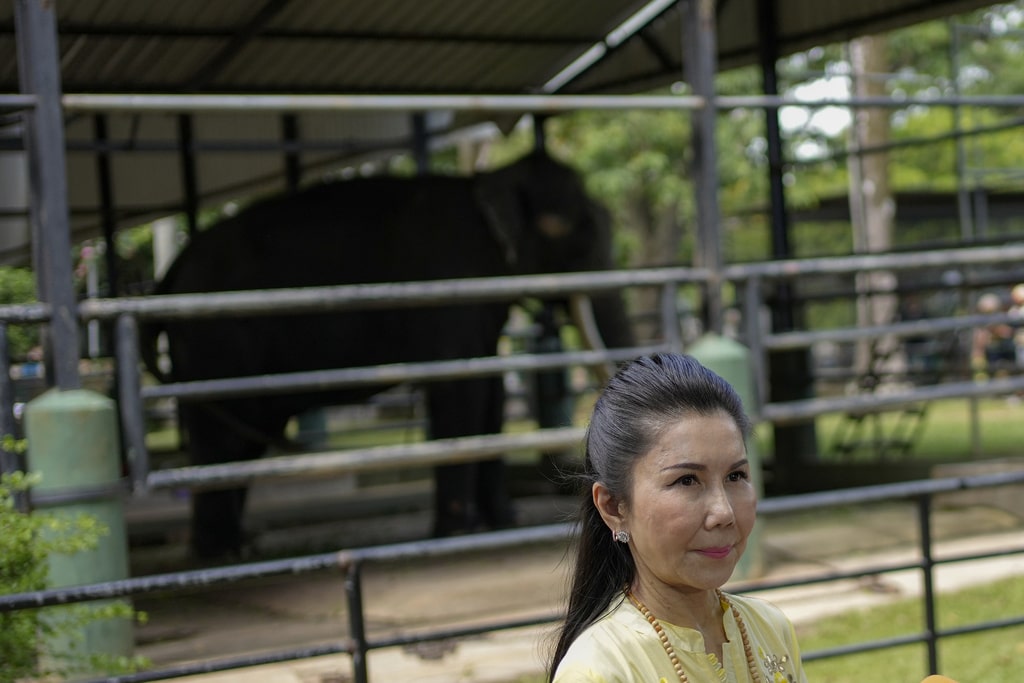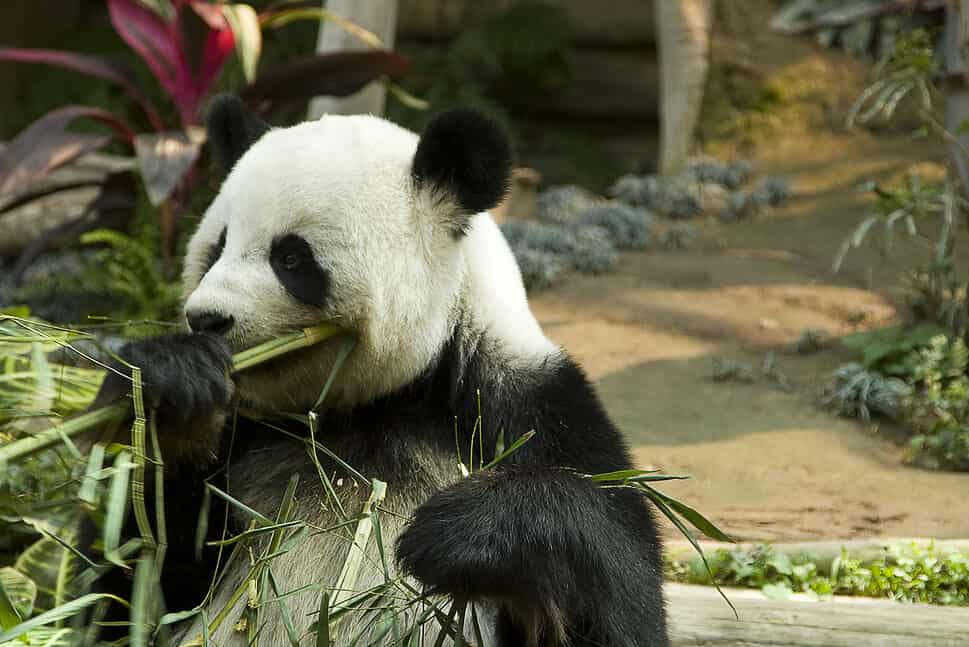A long-standing debate has resurfaced in Thailand regarding the future of pandas in the country, with Prime Minister Srettha Thavisin’s upcoming visit to China, from October 8 to 10, at the center of the discussion. The focus of this debate is a Memorandum of Understanding between Thailand and China regarding pandas, which is set to expire next month.
The conversation gained momentum when Kanchana Silpa-archa, the sister of Minister Warawut Silpa-archa and a well-known animal lover, took to Facebook on September 18 to express her views on the matter. She firmly stated that, as a fan of pandas and a staunch supporter of animal conservation, she does not agree with the Thai government’s potential request to bring pandas to Thailand. In her view, pandas should remain in their native country of China.

Her heartfelt message quickly spread across social media platforms and garnered significant support from like-minded individuals who share her passion for wildlife conservation. Kanchana Silpa-archa’s post shed light on the complexities of the issue and ignited a broader conversation about the role of pandas in Thailand’s conservation efforts.
In her Facebook post, Kanchana Silpa-archa emphasized her genuine adoration for pandas and her deep affection for all forms of wildlife. She fondly recalled Lin Bing, a panda that left a lasting impression on her and inspired her to become involved in animal welfare. She stressed the importance of prioritizing the happiness and well-being of pandas over human desires.
Furthermore, Kanchana Silpa-archa drew attention to the challenges associated with housing pandas in Thailand. Unlike China, Thailand lacks the vast open spaces where pandas can roam freely outdoors. Instead, they are confined to air-conditioned enclosures due to the country’s shorter winter season. Pandas can only venture outside for a limited period each day, which further restricts their natural behaviors and activities.
The debate over pandas in Thailand extends beyond the logistical challenges of their care. Financial considerations come into play as well. Renting pandas from China comes at a substantial cost, and the popularity of pandas among the Thai population is not as widespread as it once was. In recent years, Thai elephants and other native species have garnered more attention and support from the public.
Kanchana Silpa-archa proposed an alternative use for the budget allocated for pandas. She suggested directing these funds toward creating sustainable food sources for animals, especially wildlife, in anticipation of a severe drought expected in the coming year. This practical and conservation-focused approach resonated with many who believe that the well-being of native species should take precedence.

Thailand’s history with pandas dates back to October 12, 2003, when the country received two pandas, Chuang Chuang and Lin Hui, from China as goodwill ambassadors. These pandas resided at Chiang Mai Zoo and became beloved attractions for both locals and tourists alike. Their presence was a significant event that captured the hearts of the Thai people.
In 2009, Thailand celebrated the birth of Lin Bing, the female cub of Chuang Chuang and Lin Hui, further solidifying the nation’s affection for these charismatic animals. However, according to the agreement between Thailand and China, Lin Bing was required to be sent back to China when she reached the age of four.
Tragedy struck in September 2019 when Chuang Chuang passed away at the age of 19, leaving behind a grieving Lin Hui. She lived alone for over three years until her own passing on April 19, 2023, at the age of 21.
The loss of these pandas left a void in the hearts of those who had grown attached to them and reignited discussions about the ethics and practicality of housing pandas in Thailand.
As Prime Minister Srettha Thavisin prepares for his visit to China, the fate of pandas in Thailand remains uncertain. The heartfelt plea of Kanchana Silpa-archa, along with the broader public discourse, underscores the need for careful consideration of the pandas’ future in Thailand. Balancing the desire to conserve these magnificent creatures with the realities of their well-being and Thailand’s conservation priorities is a complex challenge that continues to stir emotions and ignite meaningful conversations about the stewardship of our planet’s precious wildlife.











